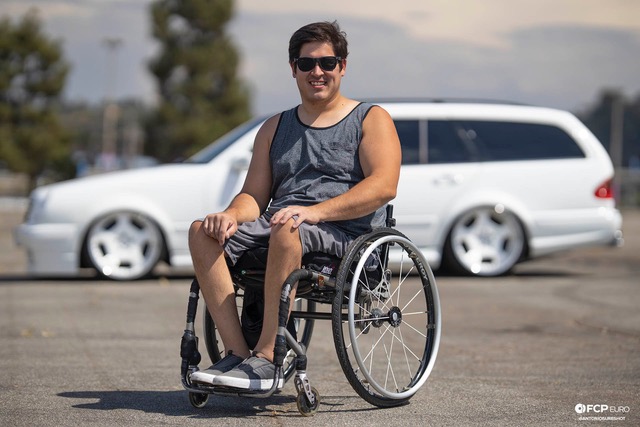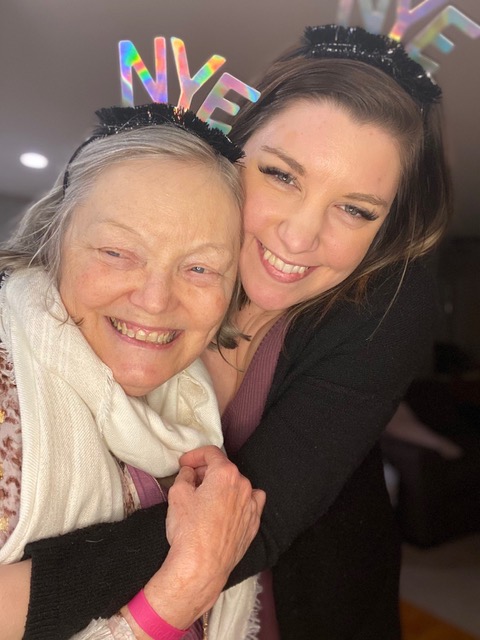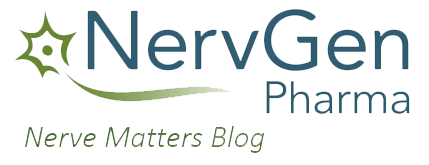By Codi Darnell
February 16, 2021
It only takes a few words to tip a life onto its axis, “You have [insert your diagnosis here]”.
Whether it’s your own condition or that of a loved one, suddenly life has a definitive before and after. Your memories are framed in a new knowing and your future becomes tough to see beneath the shadow of an uncertain trajectory. But it is in these uncomfortable spaces, when our lives are turned sideways, that our perspectives shift and we begin to examine ourselves – and our world – from a new vantage point.
This new knowing can yield a range of emotions from regret and sadness to determination and gratitude – all of them jumbled up like Scrabble tiles inside a bag. But just as each letter you pull out of the bag changes the options you have for your next move, each emotion presents you with new opportunities. Opportunities to understand more, to choose differently and to reevaluate your priorities.
Now, everyone knows what it’s like to gain perspective in one way or another – even if it is simply from aging. I mean, I can’t be the only one who sometimes wants to slap some sense into my 20-year-old self when a Facebook memory pops up. But there is something different about the perspective that comes from the big, formative moments. I asked two people to share with me how they felt their outlooks shifted within their respective journeys – one with a spinal cord injury and the other with Alzheimer’s disease.
 David Hatmaker is a dad and car enthusiast from California. He sustained a spinal cord injury 16 years ago in a biking accident. When faced with a life he wasn’t expecting, he realized that while he didn’t have control over the challenges, he had control over how he interpreted them.
David Hatmaker is a dad and car enthusiast from California. He sustained a spinal cord injury 16 years ago in a biking accident. When faced with a life he wasn’t expecting, he realized that while he didn’t have control over the challenges, he had control over how he interpreted them.
He says, “Having sustained a life changing injury at a young age has taught me one thing – I learned early on that perspective is everything. Life is full of ups and downs but it’s how I choose to deal with them that can shape my days, months, years, and ultimately, my overall quality of life. I can choose to look at everything as a burden or I can choose to accept the struggles thrown at me by life’s curve balls. Simple tasks I once overlooked have now become daily challenges that I will overcome. My perspective has been defined by my condition.”
But while David experienced a change in his outlook because of his own condition, we know the effects of any diagnosis are far reaching – infiltrating the lives of not just the individual, but also their loved ones. Patti LaFleur is such a loved one.
 In addition to being a teacher, Patti also cares for her mother with Alzheimer’s disease. Patti’s changed outlook came in how she viewed her relationship with her mom. When she stopped avoiding the diagnosis and began embracing the changes her mom was experiencing, she was able to shift her expectations and meet her mom where she was at.
In addition to being a teacher, Patti also cares for her mother with Alzheimer’s disease. Patti’s changed outlook came in how she viewed her relationship with her mom. When she stopped avoiding the diagnosis and began embracing the changes her mom was experiencing, she was able to shift her expectations and meet her mom where she was at.
Patti says, “Losing your mom when she is right in front of you is hard. My mom was diagnosed with dementia the year I got engaged. Losing parts of my mom before my wedding day – the day we had both always dreamed about – was HARD. I remember at my bridal shower, the first question asked was when my birthday was. My mom’s blank stare at the paper that day broke my heart. I spent the months leading up to my wedding and the time right after avoiding my mom’s diagnosis.
A year later, my mom’s care got to be too much for my dad. They were struggling. This is when I stepped in as her care partner and my perspective on her dementia changed. I went into problem solving mode – I made myself busy finding strategies to better support her and find ways to reach who she is now. Yes, I was (and am) still sad and grieving my mom, but I choose to love this version of her as well. It is not a separate person, but an opportunity. It is my opportunity and turn to show her the same love, patience and kindness she showed me as her daughter. Some days it may feel like our roles have changed when I am helping her shower or in the bathroom, but I know that every day my mom’s gentle spirit is shining through me.”
David and Patti aren’t travelling the same path – very few people are. However, both have come up against obstacles that stopped them in their tracks. And both have figured out how to go around or even pick up those obstacles and carry them forward.
We know that nobody wants to find themselves, or someone they love, facing a difficult medical condition. However, there are opportunities to learn, change and grow from even the most challenging experiences. As Carl Jung says, “It all depends on how we look at things, and not how they are in themselves”.
